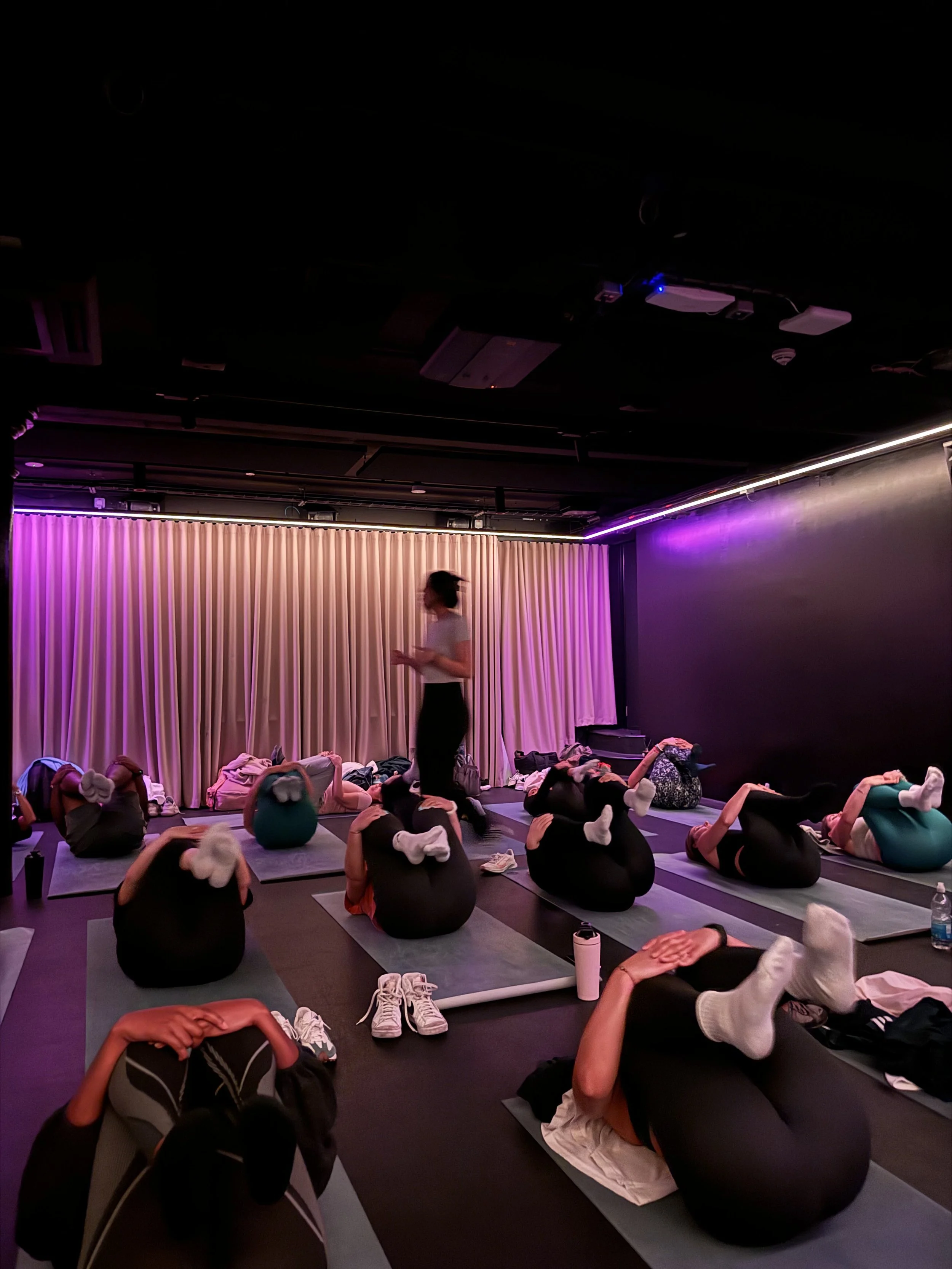Always ‘on’: The Impact of Stress on the Body and What You Can Do About It
Stress is a part of daily life. We need some of it in our lives, as it allows us to adapt and perform better, whether that is at work, at home or in training. Often we are unaware of the amount of stress we place on ourselves, and we can get close to the tipping point without realising the full impact of stress on the body – physically, mentally, and emotionally.
“ Too much water kills the flower”
If something in life is worth doing, then surely doing more of it is even better? Not quite. Think of it how ‘too much water kills the flower’.
Too much of anything in life will always be counterproductive and can negatively influence our physical and mental health. Too much work, too much training, too many responsibilities, etc.
Stress can help or hinder performance. As the diagram shows, we want to have just the right amount of it (eustress) without going towards distress. Being consistently exposed to stressful situations can lead to “burning out”.
Understanding the Impact of Stress on the Body: A physiological insight into stress
To truly understand the impact of stress on the body, we need to explore how the body responds to constant demands and how it maintains a state of equilibrium through adaptation. This dynamic equilibrium is known in biology as homeostasis.
Any change to our body or environment that disrupts homeostasis can be a stressor. This can be a change to our training, nutrition or sleep routine, a major life event or an everyday event like a crying child.
Our response to stress activates a cascade of events in our nervous, cardiovascular, immune and endocrine systems. The body prioritises energy delivery to skeletal muscle and the brain, whilst reducing less important functions for acute survival, such as digestion, immune function and sexual drive.
How the nervous system responds to stress
The autonomic nervous system includes the sympathetic and the parasympathetic nervous systems.
The sympathetic system is the one that generates the fight or flight response against threats. It makes the adrenal medulla produce catecholamines (adrenaline, epinephrine, noradrenaline and norepinephrine) and cortisol. It promotes tachycardia, hypertension, sweating, faster breathing and an increase in blood sugar. Together, catecholamines and cortisol increase available sources of energy by promoting the use of fats and the conversion of glycogen into glucose. All those mechanisms put the human body into a state of alert and readiness to fight perceived threats.
The parasympathetic nervous system is responsible for rest and recovery. It tells the brain to relax when the danger has gone.
A balance between the sympathetic (fight-or-flight) and parasympathetic (rest-and-digest) systems is needed for health and wellbeing.
If you live in the city, have a family, work a challenging job and you train regularly, your sympathetic nervous system may be working longer than it should be and producing cortisol at a much higher rate.
Elevated cortisol helps us fight perceived threats in several ways.
- Blocks serotonin, creating sleeping problems in most cases. (Serotonin helps us to relax. If there is a threat, for our safety we should not be relaxed.)
- Increases glucose availability in the bloodstream, which is the easiest and fastest way for the human body to produce energy. Constantly high blood sugar can lead to serious health problems, including diabetes.
- Promotes muscle breakdown for energy production.
- Suppresses immune function.
- Increases blood volume towards the muscles and brain.
- Cortisol also affects the reproductive system by reducing testosterone production. (If there is no survival, there is no time for reproduction.)
The effects of chronically high cortisol
One of the clearest ways to observe the impact of stress on the body is through the chronic release of cortisol, which has been associated with a wide range of health concerns, including:
- Increased incidences of coronary heart disease (CHD) and increased hypertension as a result of higher blood volume.
- Exacerbation of autoimmune or chronic conditions as a result of chronic inflammation.
- Cognitive decrements in explicit memory, selective attention, and verbal memory.
Cortisol gets us ready for battle when necessary. Being ‘ready for battle’ all day long will negatively impact health.
What can you do to manage stress for health and happiness?
If you always feel tired, have sleeping problems, get sick quite often, feel the need to rely on comfort foods, plateaued in your training or your weight loss goal, it may be time to step back and analyse your lifestyle and how much time you dedicate to yourself.
Adjust your diet
Not eating enough for the work you do will put you under unnecessary stress. Not providing your body with the right nutrients will produce deficiencies, which can lead to low energy levels and make you more susceptible to getting sick.
Use nutrition to lower stress on your body, not add to it.
Our advice: Start by adding more colour to your meals. Fruits and veg are crucial! Then start removing as much processed food from your diet as possible. You know the common culprits! Base your diet on REAL FOOD.
Eat in a relaxed state
If we shovel our food in at our desks, quickly eat on public transport or rush our evening meal, we are not creating the right environment for digestion. When the SNS is activated, digestion is not a priority.
Our advice: Make time to get into a parasympathetic state and enjoy your food. Take deep slow breaths. Take your time to chew. Put your cutlery down between bites. Be present.
Adjust your training
Exercise can be an excellent treatment for stress. It stimulates the production of endorphins; chemicals in the brain that act as natural painkillers and mood enhancers.
Getting stronger and fitter actually happens after training, during rest and recovery. Resting allows the body to repair damaged muscle fibres, and refuelling replenishes our glycogen stores.
We only get stronger and fitter if we can recover from our training, so training and recovery need to be in balance.
If you are consistently unable to recover from your training, you are overtraining.
Overtraining can happen in several ways:
Inadequate recovery between training sessions.
Sudden increases in one or more training elements: time, intensity, weight or distance.
Lack of holidays and off-seasons.
Competitions planned too close together.
How do you know you are overtraining? These are some signs:
Feeling lethargic outside of the gym and lacking the motivation to train
Frequently falling ill and getting injured
Constant excessively sore or weak muscles
Anxiety, irritability and feelings of depression, poor concentration
Loss of sex drive
Sleep problems, nausea, headaches
Higher resting heart rate and elevated resting blood pressure
Menstrual irregularities
Our advice: If you suspect you are frequently overtraining, seek a qualified coach who can prescribe a balanced training programme.
Improve your sleep time and quality
Sleep has a massive impact on our health. Whatever our goals, losing fat, gaining muscle, optimal performance or becoming better in our career, quality sleep should be a priority.
While we sleep, many of our physiological systems are regulated and repaired. Lack of sleep will result in:
A weak immune system
Mood changes
Poor control of blood sugar
Weight gain (because our hunger and satiety hormones are deregulated)
High blood pressure
Higher risk of heart disease
Lack of cognitive function
Our advice: Get a minimum of 7 hours of sleep and apply healthy sleeping habits.
Find time to relax daily
Add self-care practices to your schedule.
Self-care involves doing things that you may or may not enjoy doing but that are good for you! (Eating a tub of Ben and Jerry’s in front of the TV is not self-care). Self-care practices can include meal prepping, massage, gardening, journalling, taking a course in something you enjoy, quality time with a friend or loved one and anything that helps you feel your best.
Schedule time to get away from responsibilities
Schedule time daily, weekly, monthly, yearly. For example:
Daily: leave your phone at the office and go outside for a long walk during your break
Monthly: plan a weekend away
Yearly: plan holidays with time or activities outdoors
This makes a huge difference!
Eliminate unnecessary stressors when possible.
This matrix will help you decide what to do, what to delegate, what to schedule and what to omit from your schedule altogether. www.eisenhower.me/eisenhower-matrix/
Tackle the important items first, when you are at your most productive. Lower-priority tasks can be done second, e.g. responding to non-critical emails, house chores that don’t need immediate attention. Use the tomato timer to keep them under control.
Every little counts!
Steps you can take now:
The good news? You can take small, consistent steps to minimise the impact of stress on the body and regain control of your health.
Put a nutrition plan in place with pH Nutrition.
Get an individualised training programme with Revival Strength.
Get help with your sleep from Dr. Katharina Lederle.
Join us on a More Life Adventures trip for a day or a week.
Our breaks can help you start a more mindful lifestyle. We take the decision-making away and help you practice healthier habits:
Open-air yoga sessions overlooking the sea.
Open-air coached workouts and swimming lessons for all fitness levels.
Hikes in nature, water sports, time in the sun.
A diet of locally sourced fresh produce and the catch of the day.
Educational nutrition talks and one-to-one consultations to help you understand your needs and how to achieve your goals.
Patricia Baez-Gutierrez (MSc, SENr, ISAK) is a dietitian and performance nutritionist. She works for pH Nutrition and is based at WIT Training. She studied Human Nutrition and Dietetics at UCAM in Spain and has an MSc in Exercise and Sports Nutrition from Middlesex University. She is passionate about helping clients reach health and performance goals by adapting their diet to their lifestyle.
Bibliography
W De Vente, M Olff, J G C Van Amsterdam, J H Kamphuis,PMG Emmelkamp. Physiological differences between burnout patients and healthy controls: blood pressure, heart rate, and cortisol responses
Schneiderman, N., Ironson, G., & Siegel, S. D. (2005). Stress and Health: Psychological, Behavioral, and Biological Determinants. Annual Review of Clinical Psychology, 1(1), 607–628.
Thau, L. and Sharma, S. (2020). Physiology, Cortisol. [online] Ncbi.nlm.nih.gov. Available at NCBI [Accessed 26 Feb. 2020].
Habib Yaribeygi, A. (2020). The impact of stress on body function: A review. [online] PubMed Central (PMC). Available at NCBI [Accessed 27 Feb. 2020].
RELATED BLOGS
Want more articles like this?
Sign up and be the first to receive news and updates!








